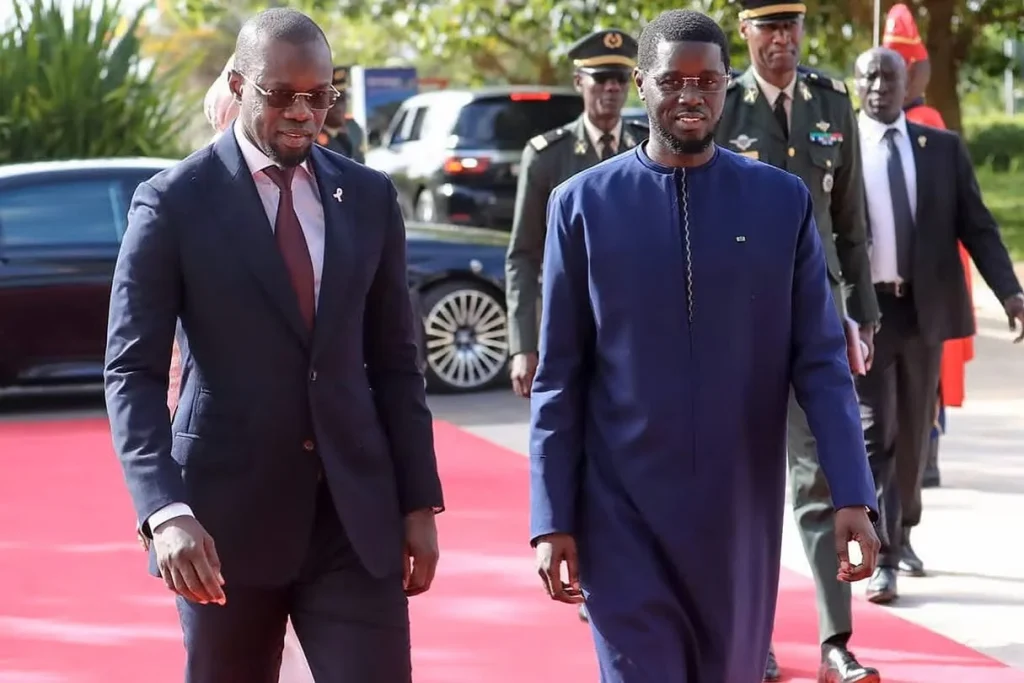A fierce public power struggle has ignited between Senegal’s President Bassirou Diomaye Faye and his Prime Minister, Ousmane Sonko.
The confrontation is shaking the nation’s ruling coalition and forcing fundamental questions about where true political authority lies.
Unilateral Action Ignites Crisis
The crisis was sparked on Tuesday when President Faye unilaterally announced a significant change. He removed Aïssatou Mbodj, a close ally of the Prime Minister, from her position as head of the “Diomaye Président” coalition. This coalition had successfully secured Faye’s 2024 election victory.
Faye immediately replaced Mbodj with his own campaign coordinator, Aminata Touré.
This move directly contradicted a public statement made by Prime Minister Sonko just days earlier. Sonko had declared there would be “no change at the head of the coalition,” making the President’s action a deliberate and visible challenge to the Prime Minister’s influence.
Sonko’s Party Declares President’s Move “Illegal”
In a swift and defiant countermeasure, Sonko convened his Pastef party leadership. The party subsequently released a statement outright rejecting the President’s authority to enact such a change.
Pastef asserted that President Faye “does not have the power to dismiss” Mbodj. The party further declared it shares “neither the same values nor the same principles” with the President’s new appointee, signaling a deep ideological and political rift now running through the government.
Governing Authority at Stake
This public clash, conducted through formal communications, exposes a foundational struggle for power within the new administration. Analysts are now seriously questioning President Faye’s capability to effectively govern without the active support of Sonko.
Sonko commands a powerful political party and retains significant popular legitimacy, as evidenced by the thousands of supporters he recently mobilized.
The confrontation leaves the ruling coalition fractured and thrusts the West African nation into a period of profound political uncertainty regarding its leadership structure.




















